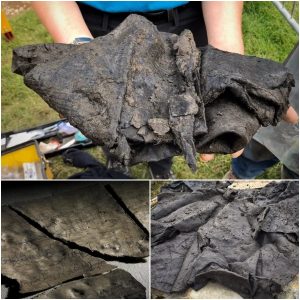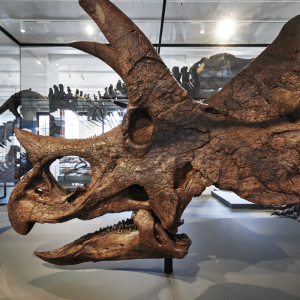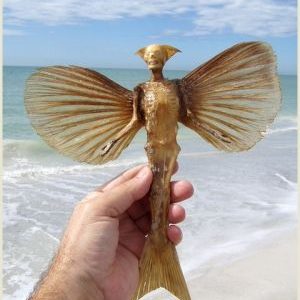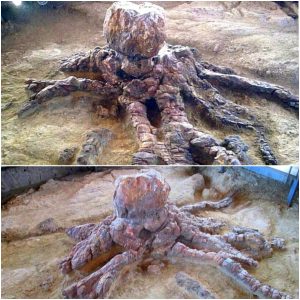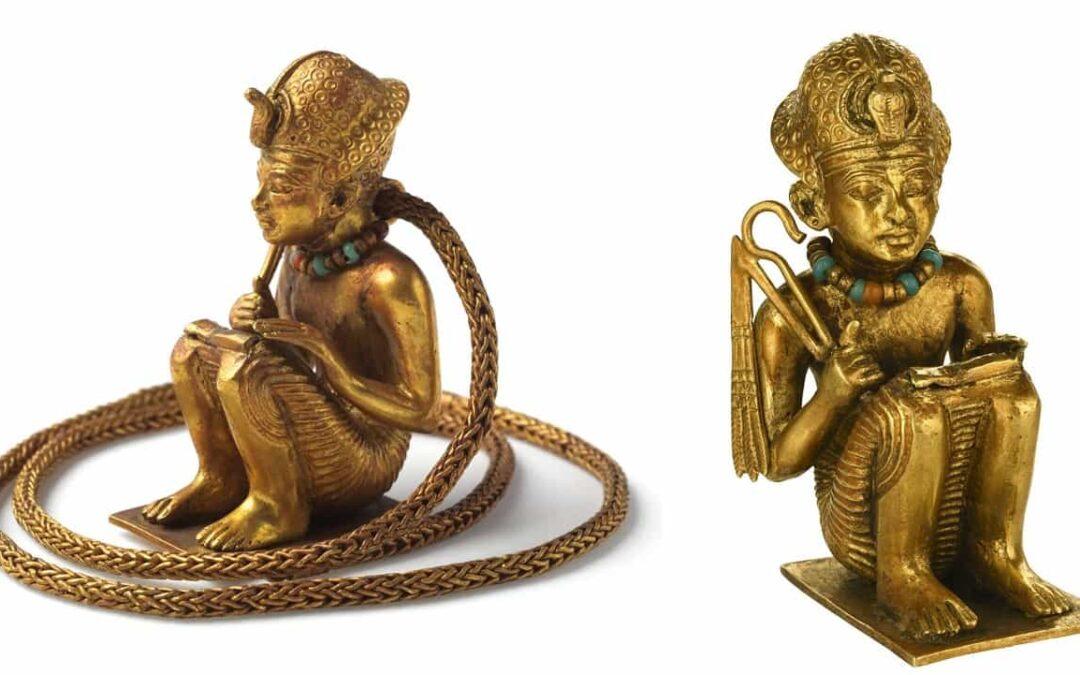
The Pendant of Amenhotep III is a small, solid gold figurine that was discovered in the tomb of King Tutankhamun in the Valley of the Kings.
The ancient depicts a squatting king wearing the Blue Crown and holding the symbols of pharaonic power, the scepter, and flail. The figurine is just over 5 cm high and is strung on a heavy, woven gold chain.
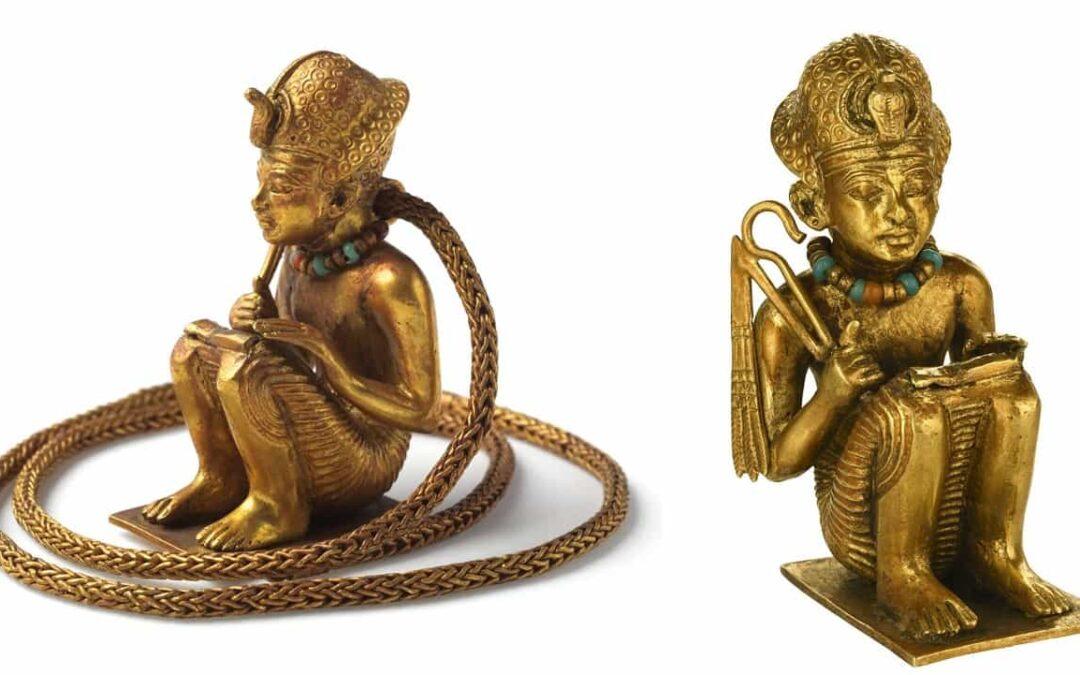
Many believe that the pendant represents Amenhotep III, Tutankhamun’s grandfather, although there is some debate about this identification.
Tutankhamun never met his grandparents, as they both died around five years before he was born. However, at the time of Tutankhamun’s reign, Amenhotep III was a well-respected and revered figure, and it is possible that those who prepared Tutankhamun’s tomb wanted to associate the young king with his grandfather.
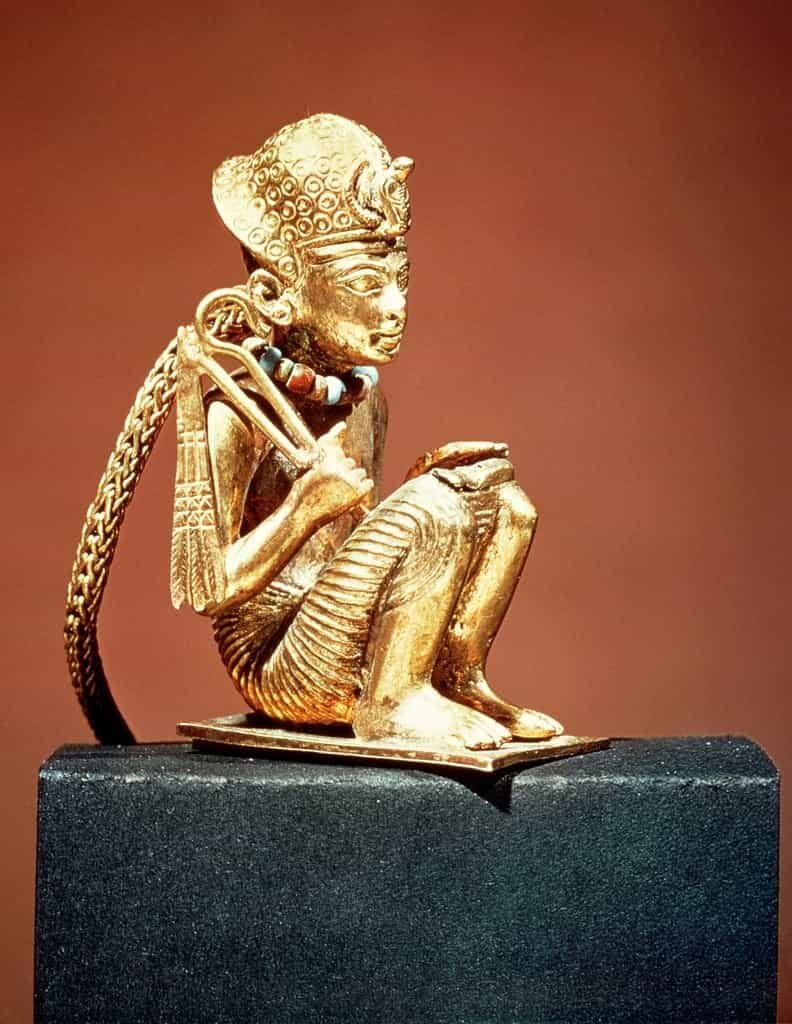
The pendant was found inside a set of nested coffins, along with a smaller coffin inscribed with the name of Queen Tiye, Tutankhamun’s grandmother, and a lock of her hair.
Howard Carter, the archaeologist who discovered the tomb, believed that the pendant and the lock of hair were included in Tutankhamun’s burial as a way of honoring his grandparents.
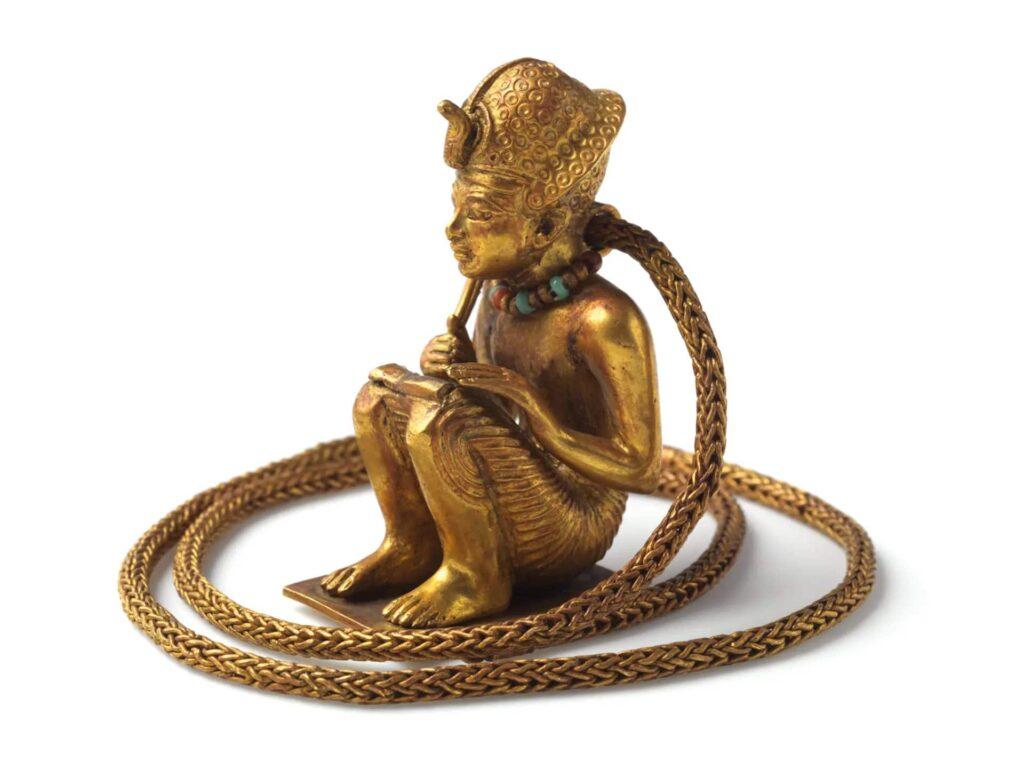
However, there is no conclusive evidence to support this theory. The inscriptions on the nested coffins mention only Tutankhamun, and the figure on the pendant has peculiar characteristics, a feature that was not present in depictions of Amenhotep III but was present in depictions of Tutankhamun and other pharaohs.
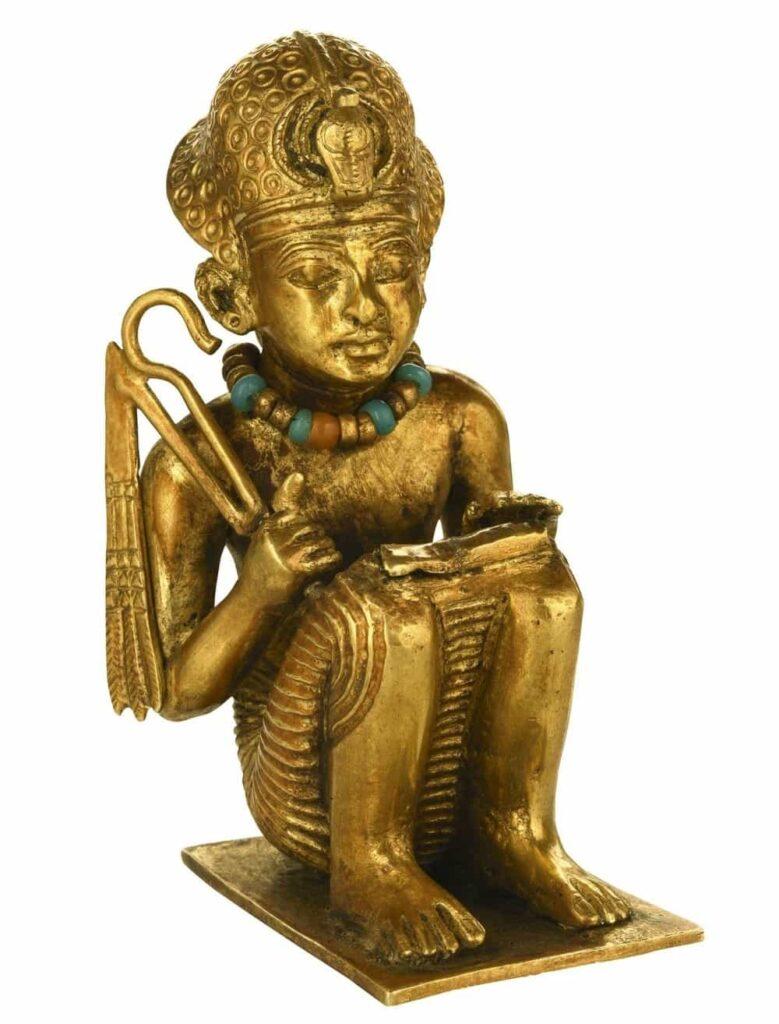
It is therefore possible that the pendant was included in Tutankhamun’s tomb for some unknown, ritual purpose. The Pendant of Amenhotep III is now in the collection of the Egyptian Museum in Cairo (JE 60702).
